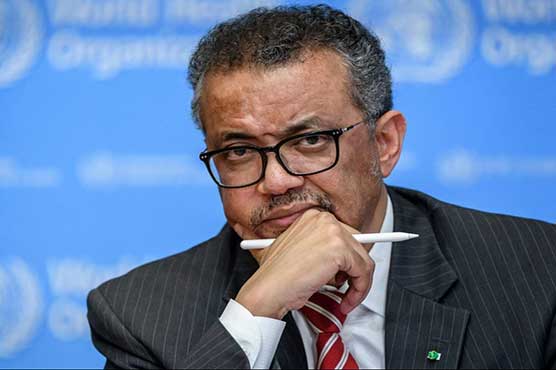WHO says COVID-19 emergency declaration gave world "enough time"

Tedros said the WHO had used the days before declaring the global emergency as time to visit China
GENEVA/LONDON (Reuters/AFP) - Tedros Adhanom Ghebreyesus gave a robust defence on Friday of his and the World Health Organization s (WHO) "timely" actions in declaring the new coronavirus an international health emergency at the end of January.
The Jan. 30 declaration was made in "enough time for the rest of the world to respond" because there were at that stage only 82 cases of infection and no deaths outside China, Tedros told a virtual media briefing at the WHO s Geneva headquarters.
Tedros said the WHO, which is seeking to lead the global response to the COVID-19 pandemic, had used the days before declaring the global emergency as time to visit China to learn more about the new virus.
During that visit, they also won a "ground-breaking agreement" with China to send in investigators, Tedros said.
Tedros, asked about relations with the United States - its biggest donor which has suspended funding after criticising WHO s handling of the pandemic, said: "We are actually in constant contact and we work together."
Confirming that the COVID-19 pandemic is clearly still a global health emergency, Tedros said he had "grave concerns about the potential impact" of the disease "as it starts to accelerate in countries with weaker health systems".
The WHO s head of emergencies, Mike Ryan, said the agency was seeing worrying increases in cases of COVID-19 in Haiti, Somalia, Sudan, South Sudan, Yemen, Syria, Afghanistan, Sierra Leone, and northern Nigeria.
Ryan also said that while the WHO recognised that some countries are beginning to consider easing lockdown measures, it was important that they are "constantly on the look out for a jump in infections" and should be ready to put some measures back in place if needed.
Tedros said the WHO would "continue working with countries and partners to enable essential travel needed for pandemic response, humanitarian relief and cargo operations, and for countries to gradually resume normal passenger travel."
"As we have done clearly from the beginning, we will continue to call on countries to implement a comprehensive package of measures to find, isolate, test and treat every case, and trace every contact," he said.
WHO wants invite to China s probe into virus origins
The World Health Organization said it hoped China would invite it to take part in its investigations into the animal origins of the novel coronavirus. "WHO would be keen to work with international partners and at the invitation of the Chinese government to participate in investigation around the animal origins," WHO spokesman Tarik Jasarevic said.
He said the UN health agency understood there were a number of investigations under way in China "to better understand the source of the outbreak", but added that "WHO is not currently involved in the studies in China."
Scientists believe the killer virus jumped from animals to humans, emerging in China late last year, possibly from a market in Wuhan selling exotic animals for meat.
But US President Donald Trump has fuelled speculation and rumours -- generally rejected by experts -- that the virus may have emerged in a top-secret Chinese lab.
WHO has also faced scathing criticism from Trump, who earlier this month suspended Washington s funding after accusing the WHO of downplaying the seriousness of the outbreak and of kowtowing to China.
The UN health agency chief Tedros Adhanom Ghebreyesus did travel with a team to China in late January, where he met with Chinese President Xi Jinping to learn more about the response.
This paved the way, Tedros explained earlier this week, for an international team of scientists to travel there in February to investigate the situation, including experts from China, Germany, Japan, the Republic of Korea, Nigeria, the Russian Federation, Singapore and the United States of America.
But as investigations into the origins of the virus have picked up pace in China, the WHO has not been involved.
The ongoing investigations are believed to be looking at "human cases with symptom onset in and around Wuhan in late 2019, environmental sampling from markets and farms in areas where the first human cases were identified, and detailed records on the source and type of wildlife species and farmed animals sold in these markets," Jasarevic said.
He stressed that the results from the virus origin studies were "essential to preventing further zoonotic introductions of the virus that causes COVID-19 into the human population."
"WHO continues to collaborate with animal health and human health experts, countries and other partners to identify gaps and research priorities for the control of COVID-19, including the eventual identification of the source of the virus in China," he said.

